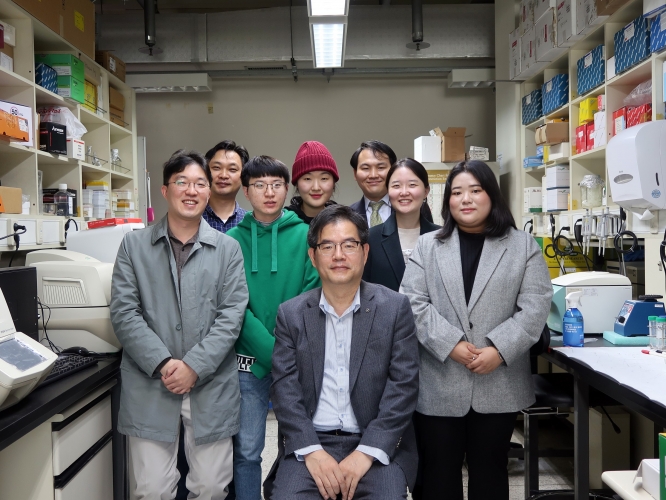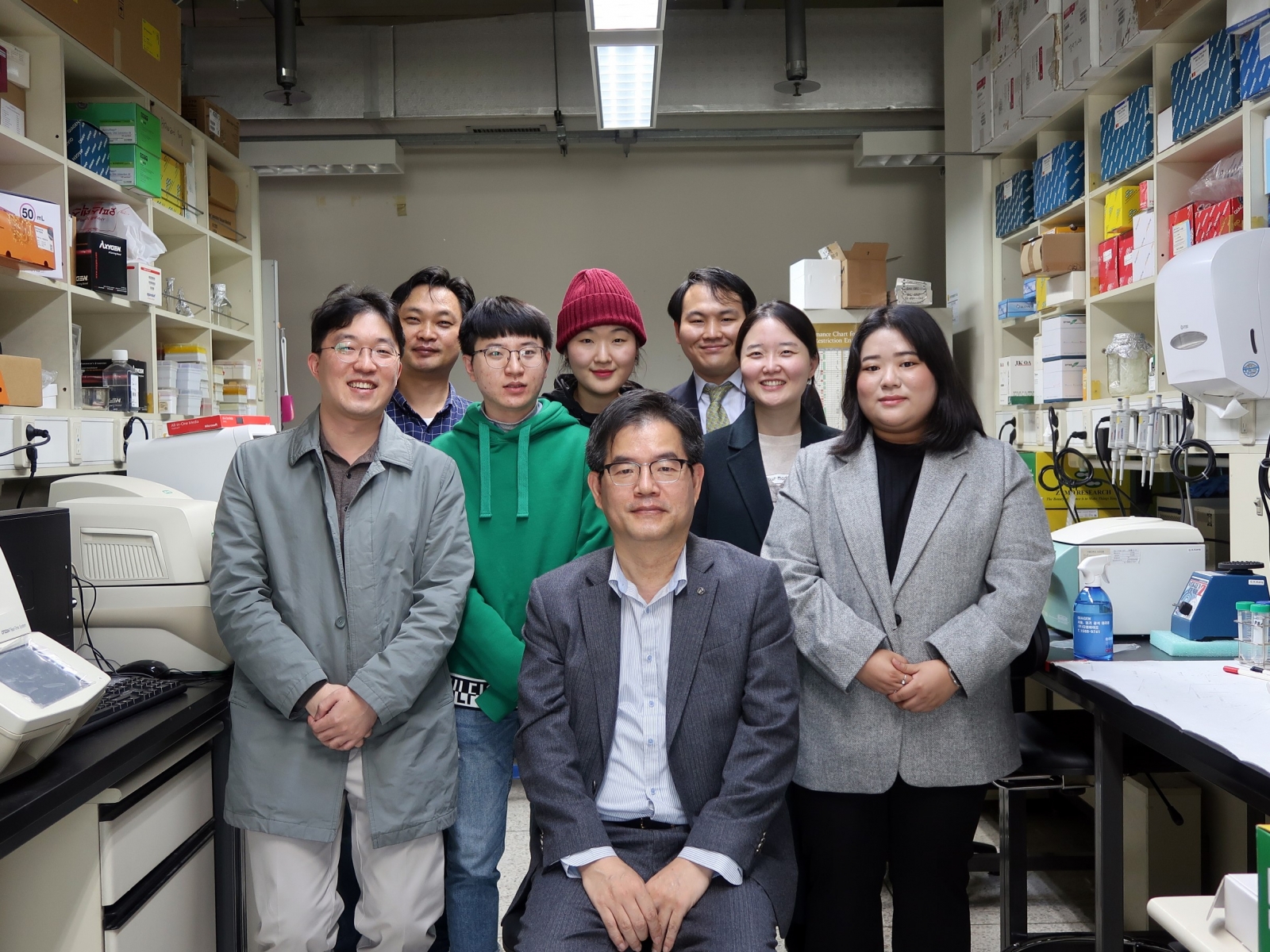
Overview
Laboratory Introduction
Laboratory of Epigenetics
Laboratory of Epigenetics
Related Researcher

Gyeong Hoon Kang Professor
- Email : ghkang@snu.ac.kr
Research topics
(1) Cancer Epigenetics - Identification of cancer-specific DNA methylation changes in major types of human cancers, such as colon cancer, stomach cancer, and liver cancer - Studies on the timing of DNA methylation changes occurring in the multi-stage carcinogenesis process of major types of human cancers - A study on the biological and clinical significance of hypomethylation of repetitive elements such as LINE-1 and Alu in the genome, and their value as biomarkers - Development of prediction panel, using DNA methylation markers, which can localize primary site of origin in cancers of unknown origin (2) Tumor microenvironment - A study on changes in the tumor microenvironment according to the major molecular subtypes of colorectal cancer and gastric cancer and its value as a biomarker - Quantitative analysis of tumor microenvironment based on digital pathology and research on discovery of new biomarkers (3) Non-invasive diagnosis of cancer using NGS and droplet digital PCR-based detection of cell-free DNA methylation
Research goals
Research achievements
• Jang BG, Kim HS, Bae JM, Kim WH, Kim HU, Kang GH. SMOC2, an intestinal stem cell marker, is an independent prognostic marker associated with better survival in colorectal cancers. Sci Rep. 2020 Sep 3;10(1):14591
• Lee JA, Yoo SY, Oh HJ, Jeong S, Cho NY, Kang GH, Kim JH. Differential immune microenvironmental features of microsatellite-unstable colorectal cancers according to Fusobacterium nucleatum status. Cancer Immunol Immunother. 2020 Jul 4 [Epub ahead of print]
• Kim Y, Rhee YY, Wen X, Cho NY, Bae JM, Kim WH, Kang GH. Combination of L1 methylation and tumor-infiltrating lymphocytes as prognostic marker in advanced gastric cancer. Gastric Cancer. 200 May;23(3):464-472
• Jang BG, Kim HS, Bae JM, Kim WH, Hyun CL, Kang GH. Expression profile and prognostic significance of EPHB3 in colorectal cancer. Biomolecules. 2020 Apr 13;10(4):602
• Yoo SY, Park HE, Kim JH, Wen X, Jeong S, Cho NY, Gwon HG, Kim K, Lee HS, Jeong SY, Park KJ, Han SW, Kim TY, Bae JM, Kang GH. Whole-slide image analysis reveals quantitative landscape of tumor-immune microenvironment in colorectal cancers. Clin Cancer Res. 2020 Feb 15:26(4):870-881
• Bae JM, Wen X, Kim TS, Kwak Y, Cho NY, Lee HS, Kang GH. Fibroblast growth factor receptor 1 (FGFR1) amplification detected by droplet digital polymerase chain reaction (ddPCR) is a prognostic factor in colorectal cancer. Cancer Res Treat. 2020 Jan:74-84
• Kim Y, Lee K, Jeong S, Wen X, Cho NY, Kang GH. DLEC1 methylation is associated with a better clinical outcome in patients with intrahepatic cholangiocarcinoma of the small duct type. Virchows Arch. 2019 Jul;475(1):49-58
• Oh HJ, Bae JM, Wen X, Jung S, Kim Y, Kim KJ, Cho NY, Kim JH, Han SW, Kim TY, Kang GH. P53 expression status is associated with cancer-specific survival in stage III and high-risk stage II colorectal cancer patients treated with oxaliplatin-based adjuvant chemotherapy. Br J Cancer. 2019 Apr;120(8):797-805
• Kim Y, Shin Y, Kang GH. Prognostic significance of CD103+ immune cells in solid tumor: a systematic review and meta-analysis. Sci Rep. 2019 Mar 7;9(1):3808
• Kim Y, Wen X, Jeong S, Cho NY, Kim WH, Kang GH. Combinatory low methylation statuses of SAT-α and L1 are associated with shortened survival time in patients with advanced gastric cancer. Gastric Cancer. 2019 Jan;22(1):37-47
• Kim Y, Wen X, Cho NY, Kang GH. Intratumoral immune cells expressing PD-1/PD-L1 and their prognostic impilcations in cancer: a meta-analysis. Int J Biol Markers. 2018 Nov 1;33(4):467-474
• Jang BG, Kim HS, Chang WY, Bae JM, Kim WH, Kang GH. Expression profile of LGR5 and its prognostic significance in colorectal cancer progression. Am J Pathol. 2018 Oct;188(10):2236-2250
• Bae JM, Kim JH, Park JH, Park HE, Cho NY, Kang GH. Clinicopathological and molecular implications of aberrant thyroid transcription factor-1 expression in colorectal carcinomas: an immunohistochemical analysis of 1319 cases using three different antibody clones. Histopathology. 2018 Feb;72(3):423-432


